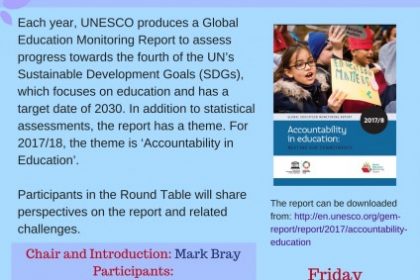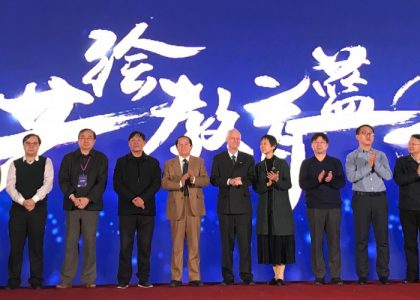Global Higher Education Bulletin (Hong Kong)
Vol. 3, No. 3 May 1, 2020
Editor: Anatoly Oleksiyenko
Greetings!
The spring semester has come to an end. We have undergone yet another challenging period of social disruption. Liz Jackson has wonderfully described the multiple layers of turmoil experienced in the Hong Kong context over the last year in her essay “Weary from the Future, Hong Kong” (you can access it via the following link: https://link.springer.com/content/pdf/10.1007/s42438-020-00116-5.pdf
Following months of mass protest, insecurity and uncertainty in the city have been further fuelled by the outbreak of the COVID-19 coronavirus. Concerns about physical existence, presence, and mobility have remained just as central to discourse during the latter crisis as in the former. The challenges faced during both have presented different obstacles. However, it seems that we have become increasingly adept at managing our anxieties in more sophisticated ways.
Based on my interactions with students, the disruptions of this past year have increased resilience, as much emotionally and intellectually as in our interactions with social, material and natural worlds. During this period, the instrumentalization of new and existing technologies has been a source of opportunity, as we overcome skepticism through thoughtful engagement with the cyberspace. Several students in my course have argued that the synchronous Zoom-based classes have created more opportunities for them to express themselves more freely and feel more engaged than in a regular classroom setting. Suddenly, we have seen more meaningful feedback from the asynchronous components of the learning space, as students have more time to engage with videos, papers, and news reports. Certainly, it is becoming ever-clearer that our emotional and intellectual expectations vary when dealing with the present commonware. Even individual freedom to modulate identities, images, and virtual backgrounds within platforms such as Zoom has been the subject of contrasting interpretations, as we decipher disparate course experiences. I would be interested to hear your opinions and reflections on this matter, and have opened this survey for you to recount your experiences and express your opinions (whether you were in our classes recently, or using online platforms elsewhere in your various roles as teachers, students, and administrators): https://forms.gle/HPibqgApsvSFGgci7. Your thoughts and suggestions will be of immense use to us as we strategize for the next few years. I also hope to share some of your thoughts and suggestions (with your permission) in the next issue.
As we think ahead to the new academic year, we are looking to formulate new ideas regarding course design, mixing in-class and online experiences, and encouraging greater flexibility in blended learning modes. We are also seeking new ways to ensure student engagement, collaboration, workshops, etc. As we delve deeper into the cyberspatial novelties of this difficult time, we also hope that this research will enable further opportunities for part-time students, who have faced additional challenges in the past, as well as mitigate clashes in commitments for employed students by facilitating greater flexibility within the traditional framework of classroom-bound learning.
Currently, we are in the final stages of the admissions process for the new cohort of the M.Ed. – Higher Education program. Many of our candidates seem to have an unprecedented level of confidence about studying in HK, in spite of the turbulence and uncertainty of this time, and have proved to be strategic and resourceful in advancing both their learning and careers in a meaningful way. Our admissions are still open, until May 15. If you know of any university or college professionals who are seeking opportunities for development, please suggest to them that they should consider joining our higher education community, and share this link with them: https://aal.hku.hk/tpg/programme/master-education. I hope that, despite the current state of affairs, our community can and will grow in the coming years.
Finally, I would like to share with you some of the recent projects and papers in our community:
1. Roy Y. Chan is working on the edited volume Coronavirus (COVID-19) and Global Higher Education: Opportunities and Challenges, and invites authors to examine the future of global higher education, and the cost and consequence associated with COVID-19 for societies and individuals. This book will be published by Routledge (Taylor & Francis), Routledge Studies in Global Student Mobility. If you are interested, please submit a chapter abstract of 500 words via Routledge at Click Here. The full Call for Chapter and book project information can be downloaded at Click here. For questions, please contact Roy at rychan@indiana.edu
2. Marina Jinyuang Ma has initiated a special issue for Sustainability (SSCI & SCI Expanded): Transnational Research Collaboration and the Impact, and is currently working with her colleagues: Chuanyi Wang from Tsinghua University and Yuzhuo Cai from Tampere University. If you are interested to contribute to this volume, please get in touch with Marina at majy@sustech.edu.cn
3. Kent Fo has recently published a paper in collaboration with Sarah Aiston. Please see Aiston, S. J. & Fo, C. K. (2020): The silence/ing of academic women. Gender and Education, DOI: 10.1080/09540253.2020.1716955
4. You may also want to read most recent publications from our faculty members:
Horta, H. (2020). PhD Students’ Self-Perception of Skills Acquired During Their PhD and Plans for Their Postdoctoral Careers: A Joint Analysis of Doctoral Students at Three Flagship Universities in Asia. In Structural and Institutional Transformations in Doctoral Education (pp. 275-323). Palgrave Macmillan, Cham.
Horta, H., & Mok, K. H. (2020). Challenges to research systems, academic research and knowledge production in East Asia: learning from the past to inform future policy. Journal of Higher Education Policy and Management, 42 (2), 119-133.
Horta, H., & Santos, J. M. (2020). The Multidimensional Research Agendas Inventory—Revised (MDRAI-R): Factors shaping researchers’ research agendas in all fields of knowledge. Quantitative Science Studies, 1(1), 60-93.
Jackson, L. (2020). ‘But is it really research?’ Mentoring students as theorists in the era of cybernetic capitalism. Educational Philosophy and Theory, 52 (1), 17-21.
Li, Y. (2020). Language–content partnership in higher education: development and opportunities. Higher Education Research & Development, 1-15.
Peters, M., Oladele, O. M., Green, B., Samilo, A., Lv, H., Amina, L., Wang, Y., Mou, C., Chunga, J., Xu, R., Ianina, T., Hollings, S., Yousef, M., Jandric, P., Sturm, S., Li, J., Xu, E., Jackson, L. & Tesar, M. (2020). Education in and for the Belt and Road Initiative: The Pedagogy of Collective Writing. Educational Philosophy and Theory, 1-24.
Postiglione, G. A. (2020). International Cooperation in East Asian Higher Education. In In: AI-Youbi A., Zahed A., Tierney W. (eds). Successful Global Collaborations in Higher Education Institutions (pp. 31-39). Springer, Cham.
Ros, V., Eam, P., Heng, S., & Ravy, S. (2020). Cambodian Academics: Identities and Roles (No. 120). CDRI Working Paper Series.
Santos, J. M., Horta, H., & Zhang, L. F. (2020). The association of thinking styles with research agendas among academics in the social sciences. Higher Education Quarterly, 74(2), 193-210.
I will be in touch with you before the beginning of the new academic year, to update you on our new developments in teaching and research.
Stay safe and be well!
Br>
With kind regards,
Anatoly















